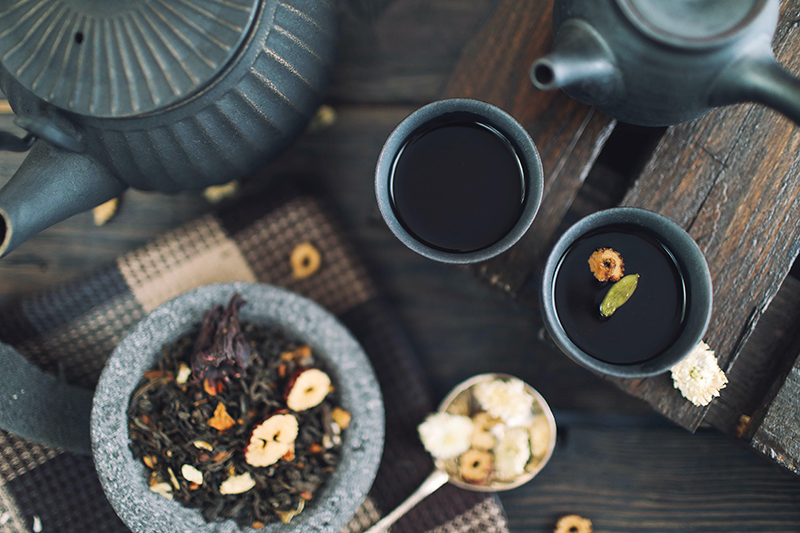Sometimes, making a cup of tea takes more than just a few minutes. You wait for the water to boil, add some tea leaves into your teapot or infuser, pour in some water and before you know it, it’s been over an hour. Sounds familiar? Over-steeping is something even the most avid tea drinkers occasionally do. But, should you drink the over-steeped tea? Let’s find out.
What is over-steeping?
Steeping is a step in preparing or brewing tea. To steep the tea, you pour hot water over tea leaves and wait for tea leaves to release color, flavor and nutrients. Over-steeping is steeping leaves in hot or boiling water for much longer than the recommended time. To get the best cup of tea, proper steeping is more than important.
What happens when you over-steep tea?
Leaves release more compounds
All real teas are made from Camellia sinensis tea plant. They contain antioxidants, caffeine, L-theanine, chlorophyll, vitamins, minerals, tannins and other compounds. Some of these compounds are bitter. All of them will need hot water to be extracted into your cup. To get the best flavor and benefits, you should always follow the recommended steeping method. While over-steeping for 1 or two hours may extract more compounds, it will extract more tannins too. That’s why your tea will be very bitter.And, it will decrease the antioxidant activity
While it’s true that the longer you steep, the more antioxidants you may extract, over-steeping in hot water for two hours may actually decrease the antioxidant activity[1] of green tea. If you want to extract more nutrients and enjoy the flavor, re-steep it instead.Leaves could release more toxic elements
When placed in hot water, tea leaves do not release only good compounds–they may release the bad ones too. Whenever possible, choose organic loose leaf tea rather than tea of the unknown origin.Flavor and color will change
Over-steeping will change the color and flavor of your tea. Instead of enjoying delicate and interesting notes, all you may notice is bitterness. If you look at the cup of green tea left for several hours, you will notice it has changed the color, deteriorate and turned brown. This is because it oxidised, in the same way an apple would once you cut it open. This means that event he high quality tea may have a poor flavor if over-steeped. And no, no green tea should have dark and murky brown color.Over-steeping in the sun may even be dangerous
Sun brewing for many hours may even be dangerous. Always thoroughly wash the pitcher or a jug you will use for steeping and don’t steep for more than a 2-3 hours. Teas that contain other ingredients rather than pure tea may be more prone to developing bacteria.
How long should you steep your tea?
Every tea is different. To get the maximum flavor and benefits it’s always best to follow the instructions on the packaging. If you can’t find the instructions and want to make a simple cup of tea, the general guidelines are:
- White tea — 1-3 minutes at 185-194°F
- Green tea – 1-3 minutes at 167-185°F
- Oolong tea – 1-3 minutes at 176-203°F
- Black tea – 1-5 minutes at 203°F
- Dark tea – 1-5 minutes at 203°F
- Herbal tea including rooibos and honey bush–5-15 minutes at 208°F
 Photo by Igor Miske
Photo by Igor Miske
As we said, every tea is different so experiment with water temperature and steeping time. If you want to use a multiple-steeping technique, you can reduce the steeping time for the first infusion significantly. A great alternative to hot brewing is cold brewing in the fridge. Learn how to cold brew here.
But keep in mind though, if you want to enjoy the best flavor and benefits, don’t over-steep it – even when cold-brewing.
Sources:
[1] https://www.sciencedaily.com/releases/2015/12/151216120154.htm



Thank you so much for providing information, consumption of green tea can help us to reduce weight, and Unjhawala tea is the processor of green tea, If anyone wants to know about green tea you must visit http://www.unjhawalatea.com/
great post google